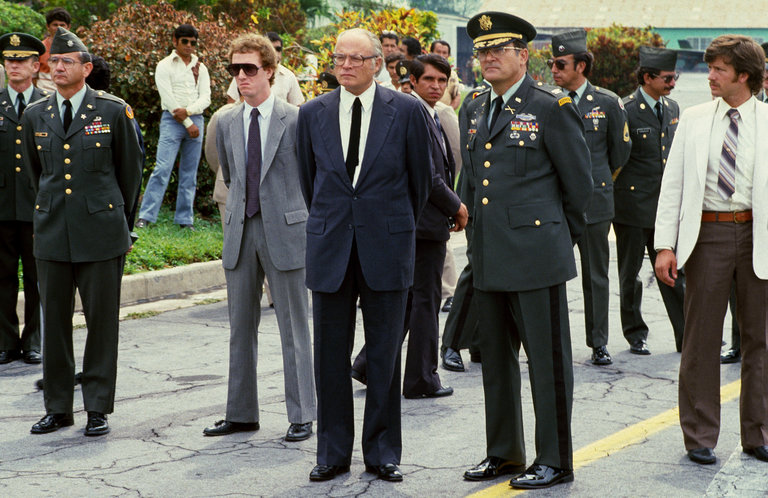Ambassador Deane R. Hinton, F52
In March, the foreign service world lost a diplomat with an astounding career. Ambassador Deane R. Hinton, whose many life accomplishments included a degree from Fletcher in 1952, died at the age of 94.

The American Academy of Diplomacy summarized Ambassador Hinton’s 48-year diplomatic career as starting in 1946 with his first assignment as a foreign service officer at the Legation in Damascus, Syria.
He was ambassador to Zaire (1974-75), El Salvador (81-83), Pakistan (83-87), Costa Rica (87-89), and Panama (90-94). He was considered among the foremost Latin American experts in the State Department. He earlier served in other capacities as a Foreign Service Officer: Damascus, Syria (46-49), Mombassa, Kenya (50-52), France, Belgium, Guatemala (67-69), where he directed USAID programs, and Chile (69-71), where he was also director of USAID. In between country ambassadorships to Zaire and El Salvador, he was drawn upon for his expertise in economics, his main area of study, as Representative of the U.S. (Ambassador Extraordinary and Plenipotentiary) to the European Economic Community in Brussels (76-79), after which he served as Assistant Secretary for Business and Economic Affairs (79-81). He was designated a Career Ambassador in 1987, a rare distinction among foreign service officers.
In its obituary, The New York Times focused on one particular episode of Ambassador Hinton’s career, when he was “rebuffed by the Reagan administration over his accusations of human rights abuses by Salvadoran security forces and right-wing ‘death squads.'” The Times goes on to note:
Leftist Salvadoran guerrillas, emboldened by the Marxist Sandinistas’ success in neighboring Nicaragua, had been trying to overthrow the country’s ruling junta. But Mr. Hinton was determined. He encapsulated his mission this way: “Save the economy, stop the violence, have the elections and ride into the sunset.”
But after an election campaign in which fending off far-right candidates was at least as demanding as subduing leftist insurgents, Mr. Hinton gave a more modest goal: “We were not going to let it become a Marxist totalitarian state.”
In a speech in El Salvador in October 1982, he also delivered an ultimatum, saying El Salvador must make progress “in advancing human rights and in controlling the abuses of some elements of the security forces,” or it would lose American military and economic aid.
He denounced El Salvador’s legal system and far right, which he blamed for thousands of murders.
The speech had been cleared by the State Department but not, apparently, by the White House. Presidential aides were quoted as saying afterward that “the decibel level had risen higher than our policy has allowed in the past.” The administration was particularly uncomfortable with Mr. Hinton’s use of the term “death squads.” He was told to refrain from any further public criticism of rights abuses.
And the Washington Post obituary highlighted yet a different episode.
Mr. Hinton held his first ambassadorship under President Gerald R. Ford, serving as representative to what was then Zaire, where President Mobutu Sese Seko expelled him for an alleged assassination conspiracy. “Total nonsense,” Mr. Hinton said. “If I’d been out to get him, he’d have been dead.”
Ambassador Hinton was born in Missoula, Montana on March 12, 1923 and retired in 1994. He died on March 28, 2017.